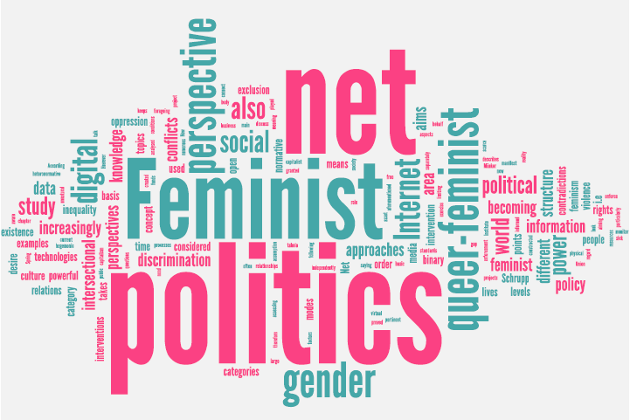Yasmin Curzi, Rio de Janeiro, Brazil, SSH Blog Correspondent
 In philosophy, the concept of “disrespect” describes situations of injustices that marginalized groups and minorities suffer in a society. In my thesis “My name isn’t pssst!”: Street harassment and feminisms’ struggle towards legal recognition”[1], I explain that street harassment, itself, expresses disrespect in two different ways:
In philosophy, the concept of “disrespect” describes situations of injustices that marginalized groups and minorities suffer in a society. In my thesis “My name isn’t pssst!”: Street harassment and feminisms’ struggle towards legal recognition”[1], I explain that street harassment, itself, expresses disrespect in two different ways:
- As a form of legal disrespect because it deprives women from exercising fundamental rights – basically, freedom, in its many forms, and equality in the uses of the city.
- As a form of social disrespect because it devaluates women socially, inhibiting the full development of their self-esteem, provoking trauma, stress, feelings of self-depreciation, anger and disgust of their own bodies, as several investigations[2] pointed out.
As Axel Honneth says in “The struggle for recognition” (1992), experiences of disrespect fuel social movements. It drives them to engage in fights to put an end to these situations of injustice. In brief, what Honneth says is that what makes individuals commit to the same cause is sharing the same situations of disrespect. In other words, disrespect generates negative emotional reactions that, in turn, when shared by others, provokes the union of these individuals in order to combat it. This bond that emerges from experiencing situations of similar sufferings can be defined as “solidarity”.
“Solidarity” expresses the true interest in the well-being of another individual. It evokes fights for a social coexistence free of experiences of injustice, that is to say, not troubled by disrespect. Thus, sharing stories and personal narratives are fundamental to identify others with the same suffering or even to raise consciousness of an interaction as a form of violence.
Social media platforms have provided a revolution in the feminist movements by creating new spaces where collective action can be organized and information can be shared. With social networks as their main tool, women began to articulate what was conceptualized as cyberfeminism by Donna Haraway in the book “The Cyborg Manifesto” in 1985.
As Holly Kearl[3] shows, significantly, these new spaces have served to mobilize women’s activism to cope with street harassment – especially by allowing the realization of surveys and by creating the possibility to women of sharing their narratives, in various parts of the globe, that are otherwise made invisible.
Also, in Brazil, in face of the scenario of structural inequality and absence of public policy for women[4], some important initiatives have been developed in the scope of civil society.
There is the campaign “Fiu Fiu Enough” (“Chega de Fiu Fiu”) of the NGO Think Olga and the movement “Women go together” (“Vamos juntas?”). The NGO Think Olga is now producing a documentary, with crowdfunding resources, that intends to expand the debate over sexual harassment in public places. The second action was idealized by the journalist Babi Souza, from Porto Alegre city, and it’s a call to women to get united with other women (strangers or not), when they’re alone in the streets. Also, there’s multiple groups in Facebook where women can arrange to go together to the same place or direction. In a partnership with “99 Taxis” (a taxi ordering app), this organization promoted workshops of non-sexist behaviors directed to the taxi-drivers associated with the app.
A third action, idealized in 2015 by the student Catharina Doria, is the app “Back Off!” (“Sai Pra Lá!”). It enables women to record where and when they were harassed and what was done to them. The purpose is to create a “harassmap” in order to alert which are risky places and also to pressure the public to assume the responsibility of assuring women’s safety.
Cyberfeminism has been, therefore, fundamental to the confrontation of street harassment as it enables resistance actions, led by women. But collectivist measures, in the scope of civil society, can’t be addressed, by material reasons, to the whole country. There should be no opposition to collectivist measures in the civil society scope, and in the elaboration of public policy toward women’s rights. Public authorities should, instead, be working along with these organized groups in order to eradicate violence against women.
Endnotes:
[1] To be published in the next year.
[2] GARDNER, Carol. Passing by: gender and public harassment, 1980. Also BOWMAN, C. Street Harassment and the Informal Ghettoization of Women, 1993.
[3] KEARL Holly. Stop Global Street Harassment: Growing Activism Around the World, 2015.
[4] See my first article for the SSH Blog: https://stopstreetharassment.org/2017/05/public-policy-women/
Yasmin is a Research Assistant at the Center for Research on Law and Economics at FGV-Rio. She has a BA in Social Sciences from FGV-Rio and a Master Degree in Social Sciences from PUC-Rio, where she wrote her thesis on street harassment and feminists’ struggles for recognition.
